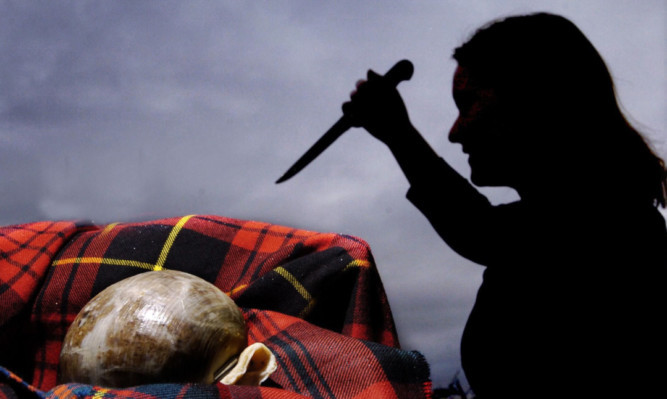It is enough to make Rabbie Burns birl in his grave.
A bold Sassenach has had the audacity to discredit Scotland’s claim to its world-famous national dish the haggis.
Leading food historian author Peter Brears, in his new book about cuisine from the north-east of England, describes it as a “fine English dish” which was made throughout the country from at least the 15th century.
The author rubs salt into the wound by claiming its modern whisky-soaked image has been manufactured and owes more to romantic patriotism than historical reality.
Listing recipes that would have been common on coalminers’ tables of Northumberland, he made a claim which may have every true Scotsman take up arms or at least his knife and fork.
“Haggis is an English dish that the Scots decided they would take on when they decided they needed a national identity,” he said.
“Newcastle haggis has got fruit, oatmeal, suet and meat in and you could get this in the Grainger Market.”
It is not the first time others have laid claim to the champion of Burns Night across the globe.
And in fact, there may be more than a grain of truth in the origins of the tasty teatime treat, as Jo Macsween, joint managing director of Macsween of Edinburgh, the guardians of Scotland’s national dish, explained.
“To some extent I agree with him but I would go even further than saying it is English, because haggis is global as it is as ancient as man’s desire and capability to go off and kill animals.
“I do not think it is English per se it is global. When I talk to people around the world about haggis, I get the same reply ‘Oh, we call it la la in our country because it equates to something indigenous’.”
“Scots have rightly claimed it as their own and made it part of our heritage and culture.”
